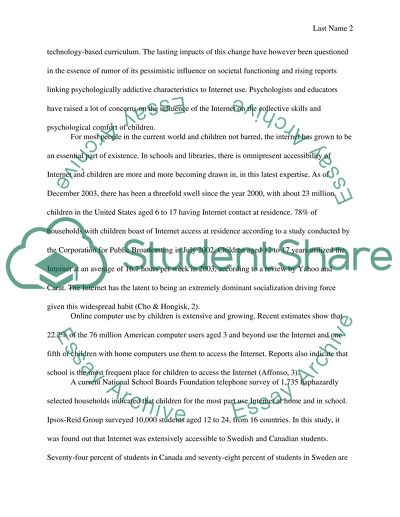Cite this document
(“Are Children More Socialized because of the Internet Research Paper”, n.d.)
Retrieved from https://studentshare.org/social-science/1571183-are-children-more-socialized-because-of-the-internet
Retrieved from https://studentshare.org/social-science/1571183-are-children-more-socialized-because-of-the-internet
(Are Children More Socialized Because of the Internet Research Paper)
https://studentshare.org/social-science/1571183-are-children-more-socialized-because-of-the-internet.
https://studentshare.org/social-science/1571183-are-children-more-socialized-because-of-the-internet.
“Are Children More Socialized Because of the Internet Research Paper”, n.d. https://studentshare.org/social-science/1571183-are-children-more-socialized-because-of-the-internet.


